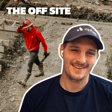Become a Creator today!Start creating today - Share your story with the world!
Start for free
00:00:00
00:00:01

Ep.33
Transcript
Playful Beginnings and Team Dynamics
00:00:00
Speaker
and he like tries to get to stand on the trap door and he's like, read them all. Read them all. And then. Sure you know. Yeah, I should've quickly checked what year was that released. I was only two when that came out. Wow. I've watched that about three months ago. That's totally alive by the way. When did it come out?
00:00:26
Speaker
2004. It was only 43. 2004. We worked out in the pub last night that two people on our team, we've got a grandad on our team at 42 and Amiya and Lara are literally half his age.
00:00:49
Speaker
So he had his first daughter when they were, yeah, the same age as them and he's in the same team as them. It's crazy. Yeah. We're interviewing someone the other day and their like personal email address was something like first name, last name, 2001. I was like, what was the, what was important about 2001? Like that was the year I was born, mate. Oh shit.
00:01:15
Speaker
I don't know, it was 2001? Yeah, it was 2001. 2001 or 2002 or something. Three of my team are like 2001 or 2002. It's crazy. I feel old. Yeah. So, there you go. Well, I guess a few bits about, yeah, the use-keeping money itself. Yeah. You know me, I'm going to make my desk stand up.
00:01:45
Speaker
It's a thing. He loves showing off. He could do it before, but he always does it once he joins. Nice. I hope you got this like a blooper. Yeah. He's also like six foot nine, so he has to crank it up to the ceiling, basically. I've never seen him stand up. Here we go. It's his power. It's his power starts. Someone's muted him. Sounds gone. No, I've muted myself there.
00:02:14
Speaker
Yeah, they will.
Podcast Structure and Tone
00:02:16
Speaker
So the episodes themselves, there's sort of some, it's like a cold open. So there's some pre-chat that goes on before, which is just like, could be us discussing something now. That'd be good. We should use the pre-chat about the cold open as the cold open. That'd be meta. Your voice has got better by the way. Yeah, I think maybe I'm working into it. Yeah, I'd be the tea.
00:02:39
Speaker
He was sounding a bit like Batman earlier. It was like proper deep from his ass. Anyway, so there's there's sort of a pre-chat and then there's like an intro which is already like pre-done. We're going to go straight in. So I'm basically going to say welcome back. Today we're talking about X and then I'll have a question that I just directly ask you. Did you just read the script where you didn't put the word like what we were supposed to talk about in for X?
00:03:07
Speaker
you know, when you get like a cold email from a house person, where it's like, I see your name. Wow. Yeah. And then we just go straight into some questions. But we quite like it to be quite informal, not super polished, not boring, just a nice chat about real stuff.
00:03:34
Speaker
That's my pitch. I like it. There's a fire alarm test here at 10, so we definitely can't go till 10. They're normally like 25, 30, 35 minutes, that sort of thing. We run out of interesting shit to say.
Site Diaries: Opinions and Humorous Moments
00:03:53
Speaker
But there's no hard and fast rule there. That's good. I'm going to check what time I will fire alarm. You should have most of your hour back then if we...
00:04:04
Speaker
That's how much you like site diaries, Jason. I love site diaries. I had this conversation today with another team of site diaries, man. Nick grabbed me this morning and he was like, Jason's fucking going to tell you a new one on site diaries because he definitely hates them. That's literally what Nick grabbed me to say.
00:04:32
Speaker
Don't put that in the recording. That's the aphid. You're a new one. I am, yes. That way. I'll sit straight, sorry. Oh, it's like this school teacher. I kicked everyone out of the office, yeah.
00:05:09
Speaker
One time Ola had to walk into the room Carlos was in and get him to spit his gum into his hand. He was chewing gum in the glass. Please tell me that wasn't the thing.
00:05:28
Speaker
Wicked. This is the first one, by the way, we're in about four months, so... Oh, is it? Are you a bit rusty? Yeah, this is the second time. Well, have you not lived by the seven hours trying to get into the actual recording? I rang so many people trying to get into the recording. I was like, why is it not working? I forgot how to do it. Go. Stretching off. Yeah, always. I think.
00:05:56
Speaker
Stretching off is a weird expression. Is that like what you say in the UK? It's the first time I've heard it. It must be a northern thing. That's what I say. Stretching off. Did I say that? You might stretch up. You don't stretch off. Stretch off sounds weirdly suggestive. It does. I play a lot of cricket and yeah, definitely stretch off.
00:06:22
Speaker
The test for how northern someone is, is what do you call a chip sandwich? A chip boy. Yeah, there we go. Right. What would you call it, Carlos? A chip sandwich. I thought it was a trick question, then. It's not a chip sandwich. There's like six different names for it. What is it? Are you talking about chips in bread?
00:06:43
Speaker
Yeah. Yes. For the further north you go. Someone is freaking out right now. I'm like, Oh, macros. Someone's macros. This will really throw you, Carlos. What do you call the bread that you said? What do you call that? So when you go to the chippy and you order a chip, what's the bread called? I've never ordered a chip buddy before. I would probably call it a chip roll. I don't know.
00:07:13
Speaker
That's definitely not a role. I don't know any about this, it's definitely not a role. I normally go for fish and chips at the chippy. In Oldham, where I'm from, it's called a muffin. So you want a chip muffin? Yeah. We have muffins for like eggs Benedict. That's not a muffin. It's not like that. In South London, when Carlos is having breakfast with the Queen, or the King, he has his eggs Benedict on the muffin. I don't know if you can relate to that at all, Will, but yeah.
00:07:43
Speaker
Up north, I have a chip balm or a chip muffin. Gary Neville's gentrifying Manchester anyway, so you'll see them soon. Gary Neville's office is right next to us. I see him regularly. Right. He's always around. Right, let's go. Come on. He's stopped smiling so much. I look like... Right. I'm going to show you, right? That's not terrible. Yeah, I should have said chicken rather something. All right.
00:08:13
Speaker
Welcome back to the pod. Today, we are talking about site diaries and we're joined by Will. Will is the CEO of
Introduction to Gather and CEO Will
00:08:21
Speaker
Gather, previously Rail Diary. Gather, I guess, is one of the leading site diary apps in the UK, so we see a bunch of projects.
00:08:31
Speaker
Will's also a QS, so it means he's very knowledgeable, extra brownie points for being someone who actually understands the why behind these things. So yeah, great to have you on the show, Will. To kick off. So for me, there's few workflows on a construction project that happen as frequently as the site diary. So you've got the majority of a delivery team filling in these forms every day.
00:08:59
Speaker
Is this something that we do at Habit? But I guess the question is, why are they so important?
00:09:07
Speaker
Yeah, good question, Carlos. And yeah, thank you for having me. It's good to join
The Evolution of Site Diaries
00:09:10
Speaker
you both. So yeah, I am a QS. So this is probably from my perspective, but I've done this for a few years now. And for me, the site diary is traditionally a paper document, isn't it? We all see it on a horrible kind of duplicate or triplicate pad, but it's there every day. It's the who, what, why, and when. That's how I kind of explain to people within our business and people within the wider industry. It's a record of what happened.
00:09:35
Speaker
And something happens every day, doesn't it? So we need to understand what happened, who was there, why were they there, what were they doing? And for me, it's understanding what we say we're going to do. And this is what we actually did. And more importantly, and probably linking back to you both from a planning perspective, why was it different? How can I learn? How can I improve? And that's why we need to do it every day. Because not just because someone said 100 or 1,000 years ago we should fill in a site diary. It's about actually understanding learning and improving every day. That's for me is why it's there.
00:10:07
Speaker
And if we think, so there's like the clear sort of, it's the record, and I'm going back to my QS hat here. It's like a record of events with all the associated information with it. How do we actually, how is that information? So you mentioned there about, it's about improving performance and things like that. Typically, how is that actually used at the moment in terms of that information that's going back? Because I guess when I think about site diaries,
00:10:37
Speaker
A lot of them were paper-based forms. So what was the sort of status quo there in terms of using that data, or is it just old school sort of, this is for claims and records? I think Jason's got his hand up. I can go first if you'd like. It's very polite, Jason.
00:10:55
Speaker
Sorry people, the hand up is like a little signal to Carlos. I didn't mean to like... Carlos has asked the guest the question, but Jason, so guest really wants to talk that he'll answer for the guest. It's like, what is he doing?
00:11:15
Speaker
Yeah, you can tell I've not been on this one before. On Teams, I just don't ignore people, but yeah, I feel like as a guest, I should be polite. Well, while I'm distracted you, I'll add to Carlos's question. How about that? I'll put the hand down. Okay, thank you. I think in general, if you were to ask the average person in construction on a project, a lot of people say we need to do a site diary. It's super important because it becomes a record. At some point, we're going to need a record.
00:11:45
Speaker
like just leaving the record of what happened. Is that the sole value of a site diary or is it you know is it important for other reasons than just we wrote down what happened on site and if we ever need to go back and demonstrate what happened on that day we've got it written down somewhere. I guess yeah I think the question that
00:12:06
Speaker
Carlos might be getting to release what I've hijacked is, what is the true value of this site diaprocess that everyone spends so much time doing every day on projects around the world really?
00:12:21
Speaker
Yeah, I think traditionally, as you explained it, it's about just having a record in case something happens, in the case something goes wrong. When I was a QS and working for Bava Beatty, an 18-year-old, worked away at London, it was all records, records, records. That's literally what I got told every single day. And my first two, three, maybe six months was just filing records, making sure we had a record for every single shift, every single project. And it was that just in case.
00:12:47
Speaker
just in case we need it, just in case something goes wrong, just in case there's an issue. And they're often just sat in a lever arch file which sits in the project office or goes back to head office when the project finishes and it's just in case. And that's the very traditional approach and people would dust them off and
00:13:05
Speaker
use it to deal with claims but I think that's changed. I think that it's had to change because we can't just carry on using the site there as a reactive thing and certainly what I've seen in the last two maybe three years is it's a proactive tool and that's what we'll be going back to my opening comment about it's about learning and improving because what's the point in just doing something to sit there and
00:13:26
Speaker
and never actually opening that record until something's gone wrong. And that's kind of what I used to do. I used to get the record out and go, this isn't very good. It's filled in paper. I'd ring up some poor person on site and say, you're not giving this information. It was three, six, nine months ago. And they wouldn't remember. But now it's having that information on a daily basis for things really important. And yeah, everyone does it. Let's make it easier. Let's make it a bit more useful. Yeah, 100%.
00:13:57
Speaker
Yeah, I guess if we think about then the status quo, right? So on a construction project right now, we're going to see a spectrum from handwritten diaries through maybe words, forms, and maybe up to a piece of technology like Gather. It's really underwhelming, given the importance of a site diary. It's this record that protects you against claims and future risks.
00:14:27
Speaker
Why do you think the like the biggest software houses have actually sort of not tackled this or put a lot of focus on this?
Challenges in Site Diary Adoption
00:14:33
Speaker
I think we've kind of fallen to the trap that we can just put the site diary in with just forms that we use on site. We've kind of just banded it together. I was with a bigger software vendor yesterday, and they kind of grouped it under HSQE, or Health and Safety and Quality. And I was like, I don't really think it sits there. Maybe that's because I'm a QS, and that's my background. But for me, it's a commercial document, it's a commercial assurance tool.
00:15:00
Speaker
for all the reason he just talks about colors and protection and understanding and improving. It drives productivity, doesn't it? How do we get better every single day? So I think people haven't tackled that because they've just thought, okay, I just build a form. And when I started Railed Areas, it was six, seven years ago, I walked into the office of Paul, who's our CTO, and said, take me this Excel sheet that I built. It's amazing. It's the best spreadsheet ever. Put it on a tablet. And I learned in about a week that the best way to enter data is not actually the table.
00:15:29
Speaker
like that's how you read data and interpret it but like we're asking people who are there to deliver a job to use a table and then and put some numbers in some some words and that's not actually a great experience for them like it's and they reluctantly do it and you get poor quality records missing records as a result so I think people have probably wrongly banded it into
00:15:51
Speaker
We can do this in a general site form, we can just make it up. But actually when we think about it, we need to think about that person on site. And I think if you think about that for me, it's like a person on site in high vis, in the pouring rain, somewhere in the middle of nowhere at 3am. How do I make their life easy? And that's probably what we've not challenged and addressed as an industry.
00:16:14
Speaker
So yeah, if we, uh, well, if we think about like, right, site guys are massively important. They can protect us from when something goes wrong, or if we've got a dispute, we could theoretically use the data for all sorts of things that could drive business value. Yeah.
00:16:32
Speaker
My experience from previous projects being on the ground is, and you tell me whether this is what it looks like. You're probably looking at a million site diaries all the time. The current status quo for the average project feels like there's some crappy form somewhere that someone has to fill out. The person that has to fill it out is sometimes right at the bottom of the food chain.
00:16:59
Speaker
No one wants to do it, so they keep delegating it down until there's no one else to keep delegating it to. You end up in this situation where there's a terrible user experience. The person filling it out is so far removed from the actual value of what this thing is for, which it could be a commercial claim, it could be a safety thing, and someone has to do it and just does it and writes stuff that might not even be relevant to protect you against that thing.
00:17:26
Speaker
Side note, we used to have to do it back when I was a site engineer and have to do the site diaries to prove that no one ever read them with this chap on night shift for about six months was taking photos of his boots and other random things around the office and attaching it as his site records in the site diary.
00:17:47
Speaker
And that went on for like six months before someone opened one of the diaries and just looked at it. What are you doing? So it's a terrible experience. It gets pushed right to the bottom, but it's so important. It seems like a weird misalignment and a problem. That means that unless the person that is doing it understands why it's important and gets some value out of it,
00:18:14
Speaker
They're always in this spot where they'll be inconsistently done, the information
Improving Site Diary Practices and Feedback Loops
00:18:19
Speaker
won't be what we need. Is that what it looks like on the ground today for the average? I think so. On the way in is what I was thinking, how many construction technology tools do we have where we rely on someone who's so far removed from the value? And I can't think of many others, if any at all, other than the site diary process.
00:18:39
Speaker
I think anecdote there is this black hole of information, isn't it? That person on site, we're trying their best to give you the right data, but it's just into this black hole. And you only actually get a phone call from an angry curious like me or Carlos when something's gone wrong.
00:18:55
Speaker
And we've not looked at them for three or four months, and now we need the records desperately. So I can't think of many other processes that, on the construction site, where that happens, because you look at your project plan every day, you look at your financials on a daily or weekly, monthly period, records, you only get out really traditionally when something goes wrong. And that's not good, is it? Think about that person on site. There's no feedback. There's no saying, you've done a really good job. Keep sending me more photos like this. This is excellent.
00:19:23
Speaker
They usually just get the sharp end of when something's gone wrong, or why have you not included this? Why have you not included those photos? And that's a horrible, horrible experience. And that's the way you get crappy records, as you described, because there's no incentive. So what I think we should do and what I'm trying to change is that feedback. Every single day, good or bad, we should tell someone, thank you, that record's really good.
00:19:46
Speaker
like thanks that keep keep giving me more photos or can I have more photos of the excavation or whatever it needs to be and that's how you'll get that feedback that's how you'll improve the quality of those records you can have the best tool the best user experience but if that person is not getting feedback from their peers then they're just going to give up aren't they so that's what I see as the status quo at the moment and that's what we're trying to change.
00:20:10
Speaker
Yeah, side note, I didn't intend to go into this, but from a software design perspective, in so many of the consumer tools we use, there's these little moments that reward you at little increments along the way. You get a lovely little inbox zero moment when you finish, you read whatever it is.
00:20:32
Speaker
And I've never seen a single one of those in any of the experience that I've ever had to use doing these side dyes, or actually just so many of the forms that we had to fill out in construction. So I think that there's lots of cool ideas that that brings up. Yeah, what's that bit to delight you? Yeah, if you mean there's none of that. It's just, yeah, I'll send it off into this black hole and
00:21:01
Speaker
And then I'll see what comes back, if anything. And like your friend who sent these boots every day. I mean, it proves that no one was looking at it. So by the way, by the way, I kind of sanitised that story. It started as boots and then got worse and worse and worse. At one point it was like
00:21:22
Speaker
photos of different subcontractors on site being like, that person's useless. And he would write on there. It got out of hand, yeah.
00:21:35
Speaker
At least they weren't first surfaced like in court or during a claim or like dispute process. That would have been a bit... Well, I think that's the only reason someone went and actually opened the things, which is the problem with it, right? Exactly. Like, someone was doing this for six months and then someone goes, oh, damn, there was an issue, you know, back in July or whatever it was, goes in there and goes, why are there photos of boots in here?
00:21:58
Speaker
Exactly. And you just lose all the value, don't you? Because it just becomes nonsense, poor quality. And it's so unfair on that person on site. And I think, going back to your question, Carlos, why the big event does not tackle that problem is because we're often selling to the decision makers, people who've got hold of budget and making tools for them. And really, we're forgetting on the person we actually expect to deliver these projects. I think that's where we need to change
00:22:22
Speaker
Yeah, I can imagine it's quite difficult because you guys typically like you would probably your way in would be through the commercial team who had the budget holder and the people sort of driving this record. But ultimately, you're asking the entire delivery team to put a lot of time and effort into something that doesn't directly give them any value, but it does give the commercial team value. Now, so more than just a record. Obviously, with paper based diaries, you couldn't really do anything with it because it's just
00:22:52
Speaker
It lives in a leverage file, as you say, and it gathers dust. What does a good site diary workflow look like now that we do have apps in place and we're gathering this information? Yeah, it's a really good question.
00:23:07
Speaker
There's two things probably for me is probably the speed and the quality. Those are how we kind of look at it. So I think the speed, just to go back to that user experience, when I was above BT, pay people extra hour data for the shift record. They did it by hand. We knew it was important. It still wasn't very good. And for that person who's extremely busy, they're doing long shifts. They're outside. They've got lots to do. It's got to be quick. It's got to be easy for them to do. So that workflow and how quickly they can do things.
00:23:33
Speaker
is super important. We've tackled that in a specific way by just pre-populating it. So how much of the record can we fill in before that person walks out on site? For us, it's 64%. So all the planned works, all the resources meant to be on site, what time we meant to access the infrastructure. So all you're asking for that person to do is say, what actually happened? Who actually turned up? How many machines we did?
00:23:59
Speaker
how many quantities of X or Y have we done? Get me some photos of it. So it shifted that kind of perception. This is a document you need to fill into. This is a workflow as you described it and say, right, this is what I'm planning to do. Tell me what actually happened. And I think that's where you get the buy-in, you get the quality and the consistency because
00:24:18
Speaker
Everyone can tell you how much they've done. I can tell you I've done 40 metres of this. I can tell you that these 10 people turn up on site. Having to work out the plan, you just get planned 100%, done 100%, and that's where we need to move away to. So for me, the workflow and the quality of a site diary includes
00:24:34
Speaker
kind of where we're working. It's the who, what, why, and when if we go through that. So who is on site, labor, plant, materials, captured in a consistent way. So I can use that information. So I can say, right, Jason's done 30 shifts this week. And I've always spelled Jason's name the same way, because Jason's got a profile and everything goes with it.
00:24:52
Speaker
I've got my plan and I know what my output or my excavator's working time is, how much standing time it is, because I can use all that data, save the material, what was on site, what was delivered. And then going back to the progress side, where this comes kind of hand-in-hand with APHEX, is understanding what we plan to do.
00:25:11
Speaker
And what we've actually delivered. So we plan to do 100 of x. What we've done, we've done 50. Well, which 50? And give us all the detail around that. And the other thing I think we miss is an allocation. So an allocation of labor plant materials. Traditionally, separate duplicate pad again. But that's kind of the secret sauce that brings it all together. So I've got who was on site. I've got what they were doing, how much they've achieved. Well, let's allocate their time to that because we can use that for short term substantiation when something goes wrong.
00:25:40
Speaker
claims all the stuff we talked about, but it's not even more powerful when we learn about it. So next time I'm doing this activity, I know what resources are required. I know what my average output is per day. I know what the risks are likely to face because I can see all the things have been delayed. So allocating our resource against activities is a thing that's not traditionally in a psych diary, but I think is the most important thing and it's how it brings it all together. Hopefully that's answered your question. That was a bit of a long answer.
00:26:06
Speaker
Yeah, so like a good outcome starts with something like a really robust capturing experience that captures that who, what, where and what was the last one? Why? Why and when, yeah. And then
00:26:28
Speaker
If you were to take that even further and go, you know, what does great look like from the business? What do you what do you see as how businesses get the most value out of that workflow, whether it's something they're doing now or something they could be doing?
00:26:46
Speaker
I think for a lot of the more progressive businesses and our customers that are really pushing the boundary, I know Carlos, you've posted about this before, is kind of real-time CVRs, understanding cost and value together, because we have that record straight from site.
00:27:03
Speaker
It's costs. We know the value is generated because we know all the activities. So that's the next step of the workflow. How I can use that, say, right, we plan to have 20 people on site. This is what we've actually got. Why was it different? Have we achieved more? Have we achieved less? And it brings kind of commercial teams who are traditionally maybe work at home these days, but away from the delivery team and delivery teams together because it brings that kind of more snow.
00:27:28
Speaker
But it does, doesn't it? Because traditionally, the end of the month ago, we've overspent. We've not achieved what we thought we would do. Why? And then you point the finger at the delivery team. What if you could have that discussion collaboratively every day or every week based on the site records, not waiting for the end of the month to the period I'm reporting. You're actually looking at your program, what's actually happened on site, and the cost with it. So I think that's where we're really pushing the boundaries. And that's where we need to get to because
00:27:55
Speaker
When you get to the moment and the period, the opportunity to do something about it is gone. So let's do it every day and then bring those people together and not just have commercial teams sit in their ivory towers. And I was definitely guilty of that in the past and actually talk to people that are out there delivering it. And do you see the idea of even going further than that and any contractors using that data to build up their production rates for tendering the next job?
Using Data for Efficiency and Supply Chain Tracking
00:28:21
Speaker
You know, that sort of... Yeah, absolutely. Like if you were to continue on the kind of claims theme, we've seen people use site diaries to kind of substantiate measured mile approach to substantiate in production outputs, which is quite detailed and we usually use kind of other projects. Well, what if you could use your own data to kind of estimate what that should have been? But then, yeah, next time I do this project, I know the delays I need to price, so I can use my site diary to create a risk register. The next time I do this project, I know all the risks I'm likely to face and the impact.
00:28:51
Speaker
I've got production outputs, I've got resources that are required to do it. And you can start to see where you can optimise things. If a 10 person gang delivers X per hour, then they cost me that. Whereas a 5 person gang delivers Y, what's the most efficient way of doing it?
00:29:07
Speaker
My background's in rail, and we start to see that too when you optimize in possessions or occupations of taking over that infrastructure for a limited amount of time. What's the most efficient use, gang size? How much should I be planning? Should I do one foundation or two? And all that sort of thing is where you learn. And you can only do that if that person on site gives you proper structured data. So you need to keep looping back to that. But yeah, that's where I see it going, Jason.
00:29:33
Speaker
And then one of the things, because this is a conversation that I've had a number of times with different contractors, literally as recently as today with a tier one in Asia. Okay, you've got this source of these records that could be generated from a really robust site, direct workflow.
00:29:57
Speaker
But one of the tricky things is that's not the only source of like records or actuals for a project. There's usually like delivery dockets, sometimes it comes in on invoices. So there's all these other potential sources of these actuals that could either suck, like if you're doing the site data and you're taking that data, you could theoretically duplicate that data.
00:30:23
Speaker
and incorrectly measure it. So how do you see either now or in the future properly bringing those sources together?
00:30:35
Speaker
Yes, good question. The example you use around delivery dockets is something that we've looked at over the last 12 months has been really popular. How can I take that delivery information with the materials that are actually used on that particular activity and even feed that back to kind of finance, so matching it with the purchase order, the invoice that has come from the supplier and actually what was done.
00:30:54
Speaker
Yeah that's about construction technology really putting the kind of working together playing nicely isn't it and how can we make that information so it's easy for you can feed it back to your ERP system, whatever you're using for financing your ordering system, what you're using to kind of understand the carbon impact of those materials all that kind of good stuff so I think that's about
00:31:14
Speaker
data being consistent but then technology companies like ours playing nicely together like understanding that that data transparency be able to give them other systems the right format of data the right quality of data gives that contractor that you spoke to this morning that that whole picture because someone might have missed something do you mean and it'll be captured elsewhere we're not trying to duplicate things we want to de-duplicate things but it's good to have that kind of capture all as well
00:31:40
Speaker
No, it's a call, sorry. Yeah, cheers. Earlier you sort of mentioned about obviously performance. So like, for example, you could understand what you're burning every day on a construction site in terms of labor plant materials, things like that. Have your customers thought about like performance of, say, supply chain? So for example, you could know yesterday that ExSUBE didn't provide labor on six sites, which is then like
00:32:06
Speaker
actually quite a big red flag for a potential issue with supply chain or like a certain type of material and things like that. Is that where the customers are going at the moment or is that a bit too sort of, yeah.
00:32:20
Speaker
No, it's happened. I've seen it happen with client organizations where they've given similar scope to two different contractors, NEC option E contracts, which clients are usually a little bit kind of nervous about. Yeah, exactly. Let's just crack on and spend as much money as possible. Well, it's not like that, is it really? It's about delivering value. So we've seen it on projects and this was a cable installation project where the
00:32:50
Speaker
first contractor was delivering let's say 100,000 meters and they were averaging £2.50 a meter and then the other contractor was delivering £4 a meter. You start to understand where people are efficient, where you're getting value for money and you increase the scope or you give them more work because they're
00:33:10
Speaker
so much more efficient. And you start to question the second contractor. And what we saw on that job is one of the contractors actually not given any more scope after their initial scope. Whereas I think the first contractor has still worked on the job. They've been given more and more scope because they're so efficient. So that's where I see clients trying to drive value for money and just be transparent. You could do all that now on a traditional paper record if you really wanted to. It would just take you a long time to work out and do that. But having real time value and production metrics
00:33:39
Speaker
makes you understand as a project, as a client, as a contractor or subcontractor where you're efficient, where you're not so efficient. And I think that's something that's missing in construction at the moment, that visibility. So yeah, that's absolutely where it needs to go. Let's talk to someone from a client organization the other day and their plan in the future is to pay higher per meter the quicker you do it. So you're really incentivized to just smash through and you're paid more and obviously you're
00:34:06
Speaker
you then command a higher fee. So yeah, I do think there's that particular in the materials front, what are we actually installing? Cause the old option here, which is basically we'll pay your cost and give you a fee. You're just not incentivized to do anything at any pace really. So yeah. Okay. That's interesting. So more pays.
00:34:29
Speaker
There's no incentive, is there? It's crazy, but yeah, if you know you're going to get more scope, do you mean more fee, then you're going to be as efficient as you can and be rewarded hopefully. So yeah, that's where I see it going, something in the UK.
00:34:44
Speaker
Will, can I just take us back to a previous question to double click on it before moving forward? The idea of this like, okay, I've got these records coming in from delivery dockets from subcontractors, and I've got folks doing a site diary with some allocation or recording of hours or recording of materials.
00:35:06
Speaker
How do you see that working? Does the site die have to be cognizant of those records and pre-populate them? Or do the team just know that we don't need to record concrete because concrete comes in via dockets? How integrated and seamless do you see that working at the moment? And then maybe how do you see it working in the future?
00:35:29
Speaker
At the moment, it's probably two very separate processes, teams, like you've described, they don't probably talk to each other even. I mean, I'm the person I get to deliver the materials. For me, I want all that information to be on the site diary. I want that report. I know what was delivered that day because it's just part of that story, isn't it? Why did we not achieve
00:35:50
Speaker
the amount of foundation we thought, say, well, the delivery of concrete didn't arrive until two hours after we thought it would be. And here's the docket that shows that that was the case from the delivery drivers. So it's just part of that story of what happened that day. So for me, we want to have the delivery dockets and other similar information as part of your site Dario, either captured Dario in it or at least appended to it as a link back to the maybe the tool or software using to
00:36:16
Speaker
to capture that information. But for us, we see a lot of clients in the UK capturing delivery dockets on their shift record or site diary every single day because it is just part of that story because material is so, so important. I see so many project delays when things have turned up late with the wrong material, wrong mix, to use the concrete example, whatever it needs to be, it's just part of that narrative for why we did or did not achieve what we thought we could do that day.
00:36:43
Speaker
Yeah, yeah, cool. At risk of boring people, I won't ask follow-on questions, but I have a long list. If I was then to like go back to what someone listening to this might be interested in hearing. So, okay, we're on an infrastructure or some sort of construction project today, like a hundred, $200 million or pounds.
Enhancing Site Diary Processes and End-User Focus
00:37:07
Speaker
Our site diary is done in some spreadsheet or wherever. It's almost doesn't matter what the tool is. It gets inconsistently filled out. You know, we do it in spits and spurts. The records in there are not like they're just someone wrote an essay or put it under the sea or their car or whatever.
00:37:26
Speaker
What would you say if you were like on that project or working with that project? What would be the steps? What would be the practical steps to get to like one of those good or great outcomes of, you know, making Sartari something that is actually valuable and consistently used?
00:37:44
Speaker
Yeah, it's a really good question. One of the first questions we ask a project like that would be, how many records are you actually expecting every day, every week? And you'd be surprised at how many people don't know. I don't know how many records I should have every single day. And we kind of start there like, are you expecting 10? Is it 100?
00:38:01
Speaker
And you should know that because you should know how many teams you're doing, who's reporting, and just making sure that's really clear. And then that's how we measure that rollout, get into that kind of success point is, have we got 100% of the records? And once you do that, you can start to improve the quality further, get the feedback. But we see projects with so many holes in their record-keeping process and not being clear what the responsibility is. But that's where we start because if you're watching this, how many records should you have on your project today? Do you know?
00:38:31
Speaker
And not many people do. And yeah, the tool and Gather takes care of the quality element to a degree because we lock it down, the workflow is structured. But we need to understand what we're measuring against. Is it 100 records? How do we get to 100 records? And that can take not that long a time. We worked with a tier one contractor on a 100 million pound job last summer. We did that in 30 days. They got from not having any records on Gather. There was some paper.
00:39:00
Speaker
Excel sheets the particular project and i won't go into it is they literally had so many paper allocation sheets that the graduate qs and bags under his desk of allocation sheets i went to their office and this is a big project and i was like are you not worried the cleaners might just take them out tonight and then put them in the bed.
00:39:18
Speaker
Like he just had BIM bags. It was crazy. And going from BIM bags to having 100% of your records in 30 days, I thought was pretty crazy, but it's quite easy to do when you just understand what I need to do and have the right tool. But yeah, moving away from BIM bags. And that is a true story, unfortunately. Yeah, yeah. You mentioned that. Yeah, I can't see what you're going to say. I'm sorry. Oh, now go ahead. Done it twice. There we go. So
00:39:48
Speaker
There's obviously this clear problem of complete records and records from the right people about full coverage of the works. And you mentioned, I think you said 64%, you can pre-populate the diary. How close to 100 can you get?
00:40:02
Speaker
think about technology that can gather or capture information. Do you think you can get to 100 or close enough? Probably don't get to 100 because we still want that narrative. You could probably use other tools to get the more objective things in, quantities and things like that.
00:40:20
Speaker
A lot of the gold in the site diary is when someone explains something. We ask them to categorize it and say, what pot does that fall into? Why was it delayed? But the real gold still comes from someone saying, right, the reason why we didn't do that work was a material issue. Well, tell me a little bit more. I need to know what the material issue was. And you might have the dockets that go with it. So we're never going to get 200% because we still rely on that person's experience. They're there to deliver the work. They know how it should be delivered.
00:40:49
Speaker
and tell them what's blocking them. And that's where I see. And you can use technology to help that. We all have it on our devices, but speech-to-text is just so popular on sites. Because when I go and see training sessions when people roll out gatherings, we encourage people on sites just to rant into their phones, just moan at the app and tell us what's gone wrong and give us that anecdotal evidence. So yeah, I'd love to get to 100%. But I think we're missing out on that kind of good stuff that happens.
00:41:18
Speaker
Yeah, and that's only when you explain and like free text is a nightmare. We want to lock that down as much as possible, bringing quantities, calculations, categorize things, drop down menus, all those kinds of simple tools. But once you've done that, explaining it in kind of free form is what you need to do.
00:41:37
Speaker
Well, I just want to say something you said right, like right at the start, we're talking about how so much software, including site diaries in construction is like designed for the benefit of someone sat at the top that gets a report and some sort of output and has very little consideration for the person, rewarding the person who's got to put the information in there is something I bang on about consistently.
00:42:03
Speaker
And there's this saying, there's this saying when it comes to social media, how the user of social media is the product and not the customer.
00:42:13
Speaker
And I think there's so much of that in a lot of construction software where the person that actually uses the software every day to do whatever the workflow is, is the product for the person that's going to get the report. And I think you can't fix any of this unless you break that model for sure and give value to the person that actually does the thing every day. Yeah, totally agree.
00:42:40
Speaker
Yeah, when I started Rail Diary, I was all about giving the best dashboard report and adoption was like through the floor. We were struggling. I like Emma who was our product manager.
00:42:54
Speaker
Design at the time, she was like, well, we just need to focus on the mobile app. We've seen so many people just use tablets. And probably six years ago, phones were a bit smaller, so tablets were quite popular. Now we see it's kind of the other way around. But it just lets us focus on that person on site. They're the person. All these fancy reports, all the other stuff is easy if we can get that right. And that's where I think we need to focus on that person. And you make the experience easier. You make it quick, because there are busy people. They don't want to do this because they're there to deliver.
00:43:24
Speaker
you make the process of them getting feedback and a normal occurrence like I can't really when I was on site how many times did I actually go and say thank you to someone and well done that was a really good site diary and maybe that's just me as a person but I don't see that happen on construction sites really I don't see that it's always when something's gone wrong like why has that happened so I see that positive feedback loop being another way to kind of break that cycle you talked about and that's that's something that
00:43:50
Speaker
we're constantly working on and we haven't got right yet and I don't think anyone's got that quite right yet but I think we all need to kind of work on how do I tell someone they've done a good job or point them in the right direction when they're not done so that's what we need to get to.
00:44:05
Speaker
Yeah, well, mate, thank you very much. I think this is a really important workflow. I think there's so much of what people are trying to do at like a higher level, whether it be AI or analytics or getting reporting across business starts at like the getting the right data captured and side diary is like tip of the spear in my view. So yeah, thank you very much for taking the time to talk with us, mate.
00:44:32
Speaker
Thank you for having me. It's been really good chatting to you both. Thanks, mate. Thank you. Cheers, gents. How'd you find that? Oh, it's good. It got quite serious, but I love to run about site there. So apologies. I won't ever get too preachy. I'm not king of ranting, so no, no.

















